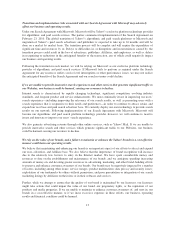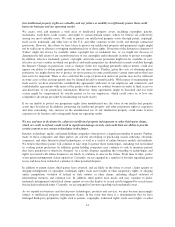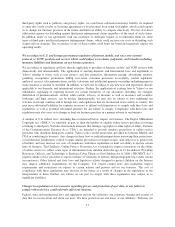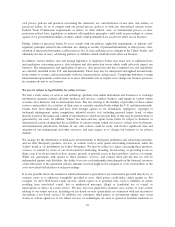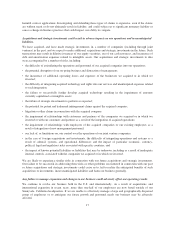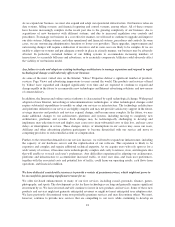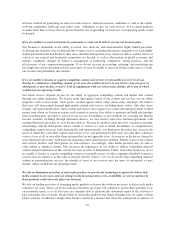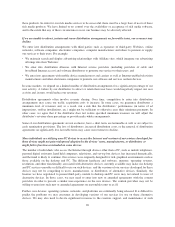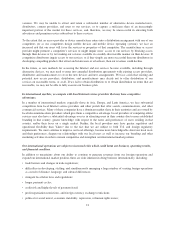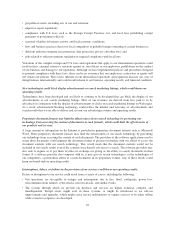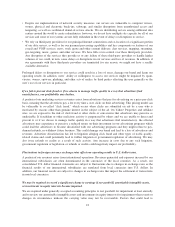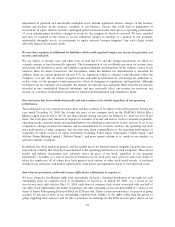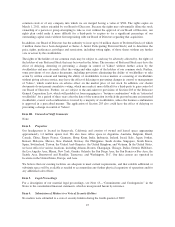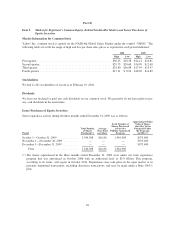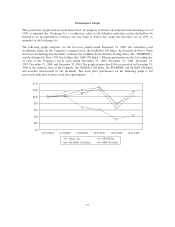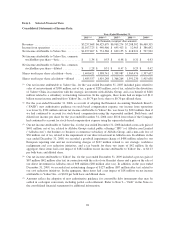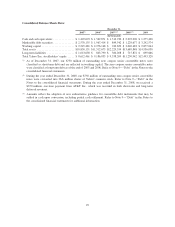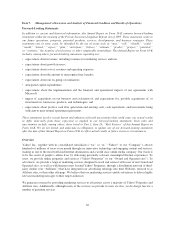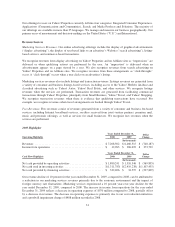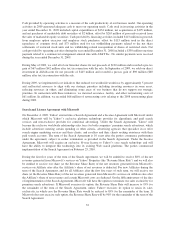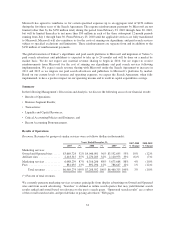Yahoo 2009 Annual Report Download - page 31
Download and view the complete annual report
Please find page 31 of the 2009 Yahoo annual report below. You can navigate through the pages in the report by either clicking on the pages listed below, or by using the keyword search tool below to find specific information within the annual report.• Despite our implementation of network security measures, our servers are vulnerable to computer viruses,
worms, physical and electronic break-ins, sabotage, and similar disruptions from unauthorized access and
tampering, as well as coordinated denial-of-service attacks. We are distributing servers among additional data
centers around the world to create redundancies; however, we do not have multiple site capacity for all of our
services and some of our systems are not fully redundant in the event of delays or disruptions to service.
• We rely on third-party providers for our principal Internet connections and co-location of a significant portion
of our data servers, as well as for our payment processing capabilities and key components or features of our
e-mail and VOIP services, news, stock quote and other content delivery, chat services, mapping, streaming,
geo-targeting, music, games, and other services. We have little or no control over these third-party providers.
Any disruption of the services they provide us or any failure of these third-party providers to handle higher
volumes of use could, in turn, cause delays or disruptions in our services and loss of revenues. In addition, if
our agreements with these third-party providers are terminated for any reason, we might not have a readily
available alternative.
Prolonged delays or disruptions to our service could result in a loss of users, damage our brand and harm our
operating results. In addition, users’ ability or willingness to access our services might be impaired by spam,
viruses, worms, spyware, phishing, and other acts of malice by third parties affecting the user generally or the
user’s use of our services in particular.
If we fail to prevent click fraud or if we choose to manage traffic quality in a way that advertisers find
unsatisfactory, our profitability may decline.
A portion of our marketing services revenues arises from advertisers that pay for advertising on a price-per-click
basis, meaning that the advertisers pay a fee every time a user clicks on their advertising. This pricing model can
be vulnerable to so-called “click fraud,” which occurs when clicks are submitted on ads by a user who is
motivated by reasons other than genuine interest in the subject of the ad. On Yahoo! Properties and Affiliate
sites, we are exposed to the risk of click fraud or other clicks or conversions that advertisers may perceive as
undesirable. If fraudulent or other malicious activity is perpetrated by others and we are unable to detect and
prevent it, or if we choose to manage traffic quality in a way that advertisers find unsatisfactory, the affected
advertisers may experience or perceive a reduced return on their investment in our advertising programs which
could lead the advertisers to become dissatisfied with our advertising programs and they might refuse to pay,
demand refunds, or withdraw future business. This could damage our brand and lead to a loss of advertisers and
revenues. Advertiser dissatisfaction has led to litigation alleging click fraud and other types of traffic quality-
related claims and could potentially lead to further litigation or government regulation of advertising. We may
also issue refunds or credits as a result of such activity. Any increase in costs due to any such litigation,
government regulation or legislation, or refunds or credits could negatively impact our profitability.
Fluctuations in foreign currency exchange rates affect our operating results in U.S. dollar terms.
A portion of our revenues arises from international operations. Revenues generated and expenses incurred by our
international subsidiaries are often denominated in the currencies of the local countries. As a result, our
consolidated U.S. dollar financial statements are subject to fluctuations due to changes in exchange rates as the
financial results of our international subsidiaries are translated from local currencies into U.S. dollars. In
addition, our financial results are subject to changes in exchange rates that impact the settlement of transactions
in non-local currencies.
We may be required to record a significant charge to earnings if our goodwill, amortizable intangible assets,
or investments in equity interests become impaired.
We are required under generally accepted accounting principles to test goodwill for impairment at least annually
and to review our amortizable intangible assets and investments in equity interests for impairment when events or
changes in circumstance indicate the carrying value may not be recoverable. Factors that could lead to
23


